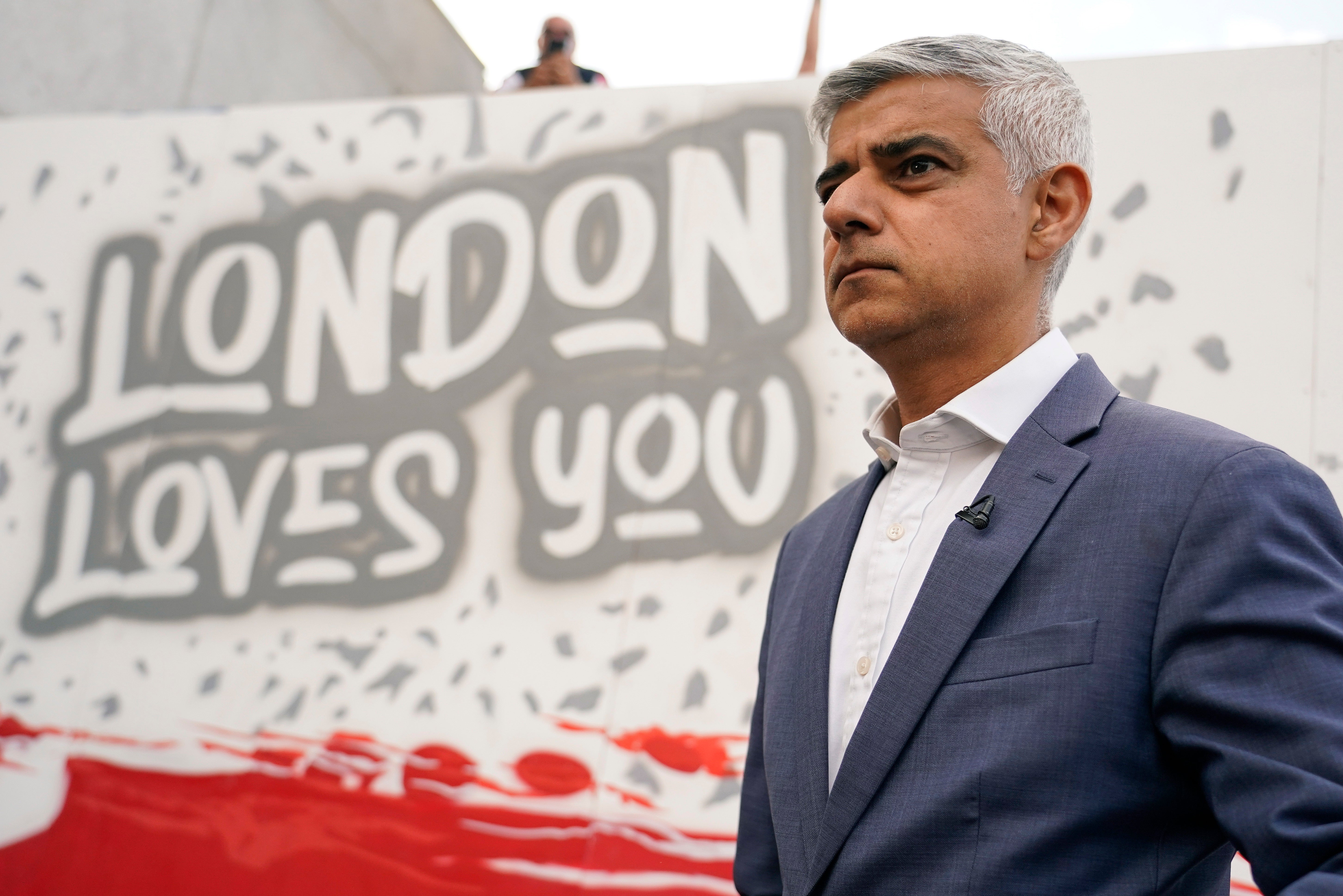What is Islamophobia? Definition of anti-Muslim prejudice as Tories suspend MP over rant
MP Lee Anderson made comments about Sadiq Kahn during an interview on GB News which have been widely condemned as Islamophobic
Your support helps us to tell the story
From reproductive rights to climate change to Big Tech, The Independent is on the ground when the story is developing. Whether it's investigating the financials of Elon Musk's pro-Trump PAC or producing our latest documentary, 'The A Word', which shines a light on the American women fighting for reproductive rights, we know how important it is to parse out the facts from the messaging.
At such a critical moment in US history, we need reporters on the ground. Your donation allows us to keep sending journalists to speak to both sides of the story.
The Independent is trusted by Americans across the entire political spectrum. And unlike many other quality news outlets, we choose not to lock Americans out of our reporting and analysis with paywalls. We believe quality journalism should be available to everyone, paid for by those who can afford it.
Your support makes all the difference.The meaning of the term Islamophobia has come under the spotlight following MP Lee Anderson’s suspension for an anti-Muslim rant about Sadiq Khan.
The former deputy chairman of the Conservative party lost the party whip after failing to apologise over a widely criticised interview on GB News in which he said “Islamists” have “got control” of Mr Khan.
In response, the mayor of London said the comments were Islamophobic, anti-Muslim and racist.

The row deepened on Sunday with deputy prime minister Oliver Dowden refusing to say the Ashfield MP’s comments were racist. Business minister Nus Ghani and senior Tory backbencher Sir Sajid Javid have been among those in the party to strongly condemn the remarks.
On Monday morning, four days after the controversy began, Rishi Sunak said the comments were wrong but disagreed the Conservative Party had ‘Islamophobic tendencies’.
What is Islamophobia?
According to the Cambridge Dictionary, the definition of Islamophobia is an “unreasonable dislike or fear of, and prejudice against, Muslims or Islam”.
The United Nations goes a step further in providing a more precise definition of the term.
It states: “Islamophobia is a fear, prejudice and hatred of Muslims that leads to provocation, hostility and intolerance by means of threatening, harassment, abuse, incitement and intimidation of Muslims and non-Muslims, both in the online and offline world.
“Motivated by institutional, ideological, political and religious hostility that transcends into structural and cultural racism, it targets the symbols and markers of being a Muslim.”
The definition goes on to say Islamophobia is a form of racism, whereby Islamic religion, tradition and culture are seen as a ‘threat’ to western values.
However, the scope and precise definition is a continuing subject of debate. Some scholars dispute it is a form of racism on the grounds that religion is not a race.
How do political parties define it?
Mr Anderson’s comments have again drawn focus to an ongoing political row over the classification of Islamophobia.
In 2019, the all-party parliamentary group on British Muslims produced a working definition in a bid to help tackle the issue while building a common understanding of its cause and consequences.
Its definition read: “Islamophobia is rooted in racism and is a type of racism that targets expressions of Muslimness or perceived Muslimness.”
Following its publication, the Labour Party and the Liberal Democrats formally adopted the definition backed by more than 750 British Muslim organisations, 80 academics and 50 MPs.
However, the Conservative Party refused to. At the time, a spokesperson said: “Any such approach would need to be considered carefully to ensure that this would have the positive effect intended.”
The party stance was highlighted on Sunday, when business secretary Kemi Badenoch said the party used the term “anti-Muslim hatred” in response to Labour MP Anneliese Dodds’ call for the Conservatives to adopt the definition.
Ms Badenoch added: “The definition of “Islamophobia” she uses creates a blasphemy law via the back door if adopted.”
Combating Islamophobia
Back in 2022, the UN made 15 March the International Day to Combat Islamophobia with at least 140 countries taking part.
The date was chosen as it marked the anniversary of the Christchurch mosque shooting in New Zealand which claimed the lives of 51 people.
There is also a worldwide Islamophobia Awareness Month which takes place in November.
Among the UK organisations to lead on the event was the Muslim Council of Britain (MCB) which last year used it to share the experiences of British Muslims.
It came in the same month Home Office figures showed two in five cases of religious hate crime recorded by police in England and Wales were against Muslims in 2021/22.
“We have witnessed a troubling surge in Islamophobic rhetoric and attacks,” said MCB secretary general Zara Mohammed in November.

Lee Anderson’s comments
Mr Anderson’s remarks on GB News sparked outrage on Friday - with the MP stripped of party support on Saturday amid mounting condemnation from across the political divide.
In the interview, he said: “I don’t actually believe that the Islamists have got control of our country, but what I do believe is they’ve got control of Khan and they’ve got control of London… He’s actually given our capital city away to his mates.”
Following his suspension, the MP did not apologise, but said in a statement: “Following a call with the chief whip, I understand the difficult position that I have put both he and the prime minister in with regard to my comments. I fully accept that they had no option but to suspend the whip in these circumstances.”
He added that he would “continue to support the Government’s efforts to call out extremism in all its forms - be that anti-semitism or Islamophobia”.
What has the reaction been to the remarks?
Among the first to respond was Mr Khan who strongly condemned Mr Anderson’s comments, describing them as Islamophobic, anti Muslim and racist.
He went on to question why Mr Sunak and his cabinet members were not “calling this out or condemning this”. He added: “It’s like they’re complicit in this sort of racism. And I think the message it sends is, Muslims are fair game.”
On Sunday, deputy prime minister Oliver Dowden said he disagreed with the language used, but did not believe the Ashfield MP had been “intending” to be Islamophobic. He said the MP had used “the wrong words”.
However, Baroness Warsi, who was a minister in now-foreign secretary Lord Cameron’s government, said Mr Sunak needed to “find the language” to explicitly “call racism racism”.
Sir Robert Buckland, a former justice secretary, suggested Mr Anderson’s remarks were “repugnant” and “racist” in an interview with BBC Radio 4.
Also on Sunday, the MCB wrote to the chairman of the Conservative Party demanding an investigation into “structural Islamophobia” in the party.
A Conservative spokesperson said: “An investigation and subsequent independent review, both conducted over several years by Professor Swaran Singh, found no evidence of institutional racism in the Conservative Party.”

Join our commenting forum
Join thought-provoking conversations, follow other Independent readers and see their replies
Comments